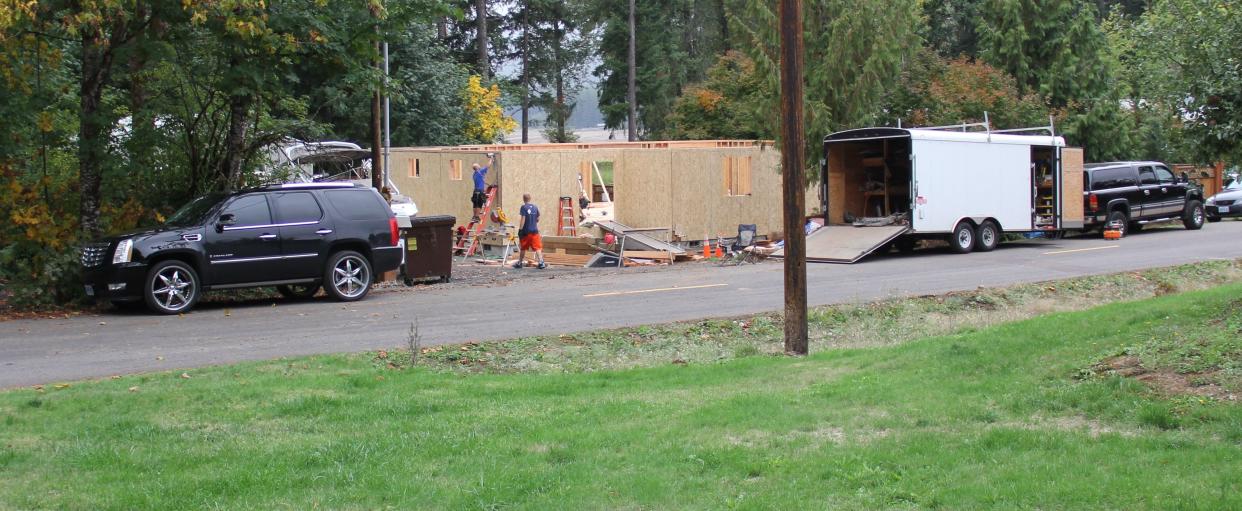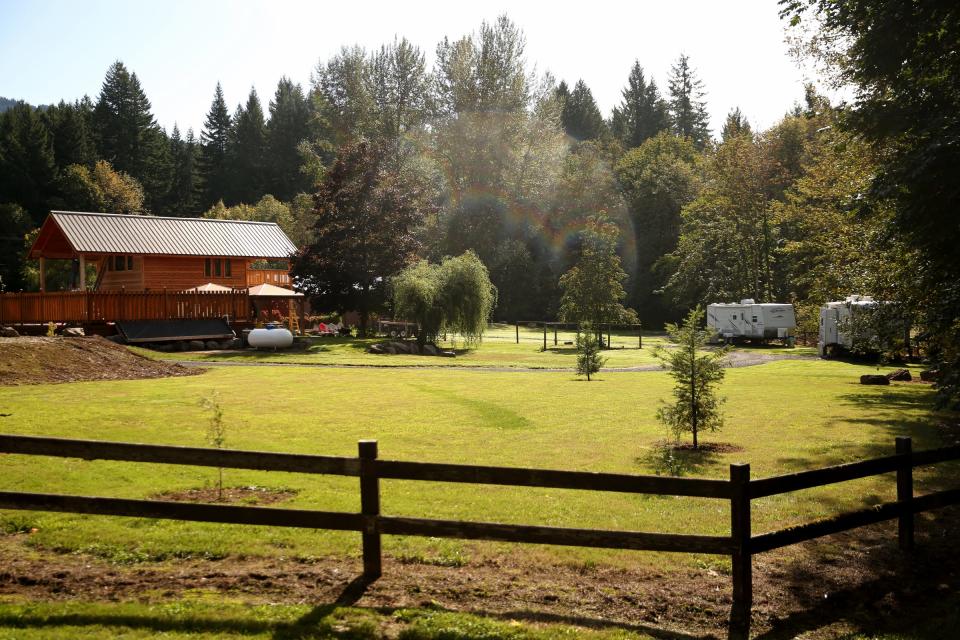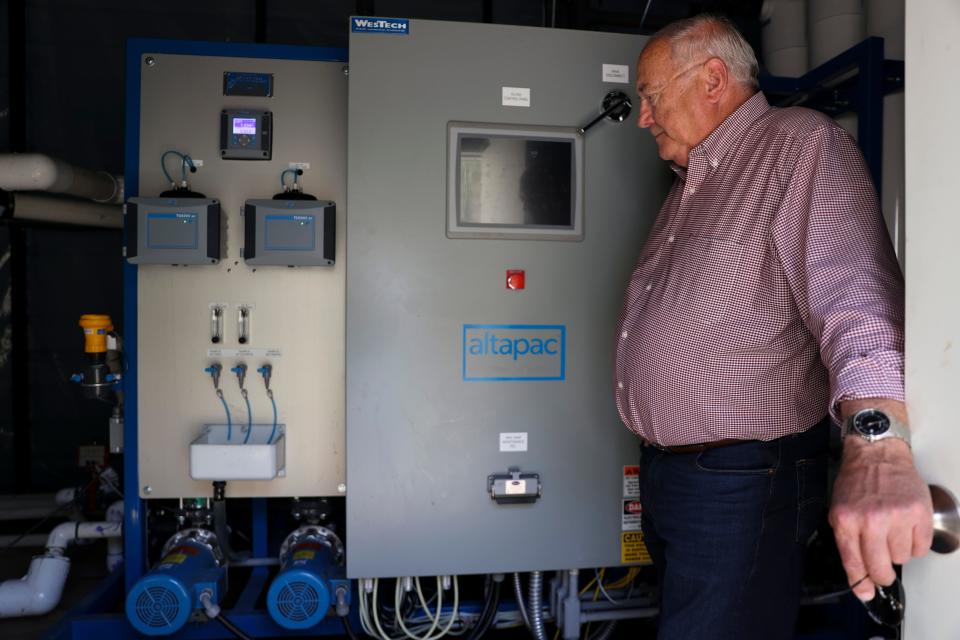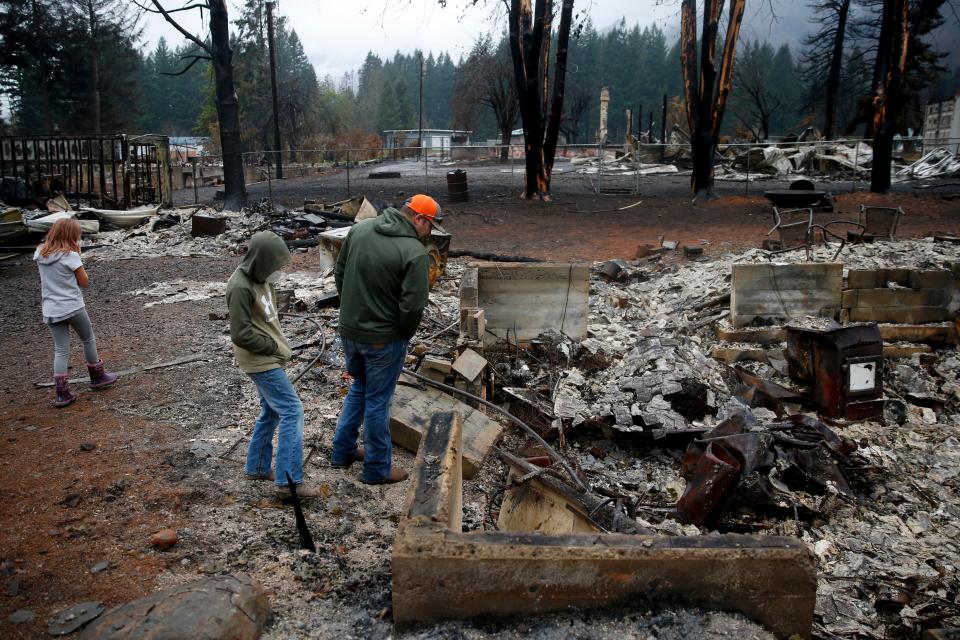Detroit considers restrictions on residential RVs as use booms

Recreational vehicles have been a presence in Detroit for decades.
For just about that long, people have been concerned about them.
Now the city is considering restricting how much residents can use them, and how many they can have.
For more than a decade, Detroit has had policies that allowed people to live in recreational vehicles on their property while building homes. But people have taken that to mean they should be able to live in them full-time or have a bunch of them on their property.
That's caused friction in the city.
In the wildfires of 2020, about 80% of the 600 buildings in the city were destroyed.
Some people purchased lots with the intention of not building a home on the property.
“Then it became for us as we vision Detroit coming back, are we going to be a community, or are we in effect going to be an RV park?” Detroit Mayor Jim Trett said.
The city’s planning commission will meet at 6:30 p.m. on Tuesday and will have a public comment session about the issue at Detroit City Hall. The city council is scheduled to have a public hearing on the issue at 6:30 p.m. on May 9.
A history of recreational vehicles
There have always been challenges when it came to building homes in Detroit. Between strict requirements for septic systems at homes throughout the Santiam Canyon and the city being so remote – it’s about 50 miles to Salem or Sisters – building in the city has always been a challenge.
In 2011, Detroit’s city council passed a rule that allowed people to live in a recreational vehicle on their property full time while they were building their home.
The theory was that living on the property in an RV would allow the owner to build faster, or at all.

From April 1 through Oct. 31, the city allows two recreational vehicles to be parked on a property. In the past, a third and fourth RV could be on the lot, but two city councilors were required to approve that.
For the most part, it allowed people to use Detroit as a getaway spot, somewhere they could head to on weekends and during the summer, when Detroit Lake is full – or close enough – and people while away sunny days on boats.
“I have a neighbor on one side who had a garage there that was there when he bought the lot, but not house,” Trett said. “But they had an RV there. They were following the rules.
“Memorial Day weekend, ‘Hi, how are you.’ In the summer they’d be opening it up, they’d be up weekends. In September, they’d be up and say, ‘See you next summer,’ because they’d be closing it down, then drive up once in a while just to chat. That was the kind of thing we would see.”
In 2019, the city looked at changing the code to restrict the number of RVs on a property, but that received huge opposition.
In February 2021, the city council passed an emergency ordinance that allowed people who lost properties in the wildfires to live in an RV on their property year round. But whilethose permits last two years, property owners could get two one-year extensions before the permits sunset in 2025 if they showed they were making progress on their homes.
The city was able to do that under a state law designed to encourage transitional housing for cities ravaged by the wildfires in 2020.
There are fewer campgrounds around Detroit to place RVs than there were before the wildfires, which makes it harder to get a space for one for a vacation.
And the three RV lots in Detroit frequently are full all summer. After the wildfires, people bought lots to place their RVs.
It allowed the tourist-dependent businesses like the two marinas in town to recover better after the fires.
The fight over recreational vehicles
The city has received a steady stream of complaints over the years – from two to four per year – since 2018 about RVs on properties.
Trett said there was an instance last summer when there was a medical emergency at a house in town, and the fire department couldn’t get its equipment down the street due to so many cars in front of properties with multiple RVs.
At a February work session about changing what RVs are allowed, there was a lot of opposition to changing the rules.

Citizens raised concerns ranging from the progress they were being able to make on their new homes, purchasing lots under the prior rules and asking if the city can charge a fee to make up for lost tax revenue.
Don Chandler said he was flustered with how the city has handled complaints about problem RVs and voiced concern he put time and money into his lots and would like to see the city spend more times on improvements to Detroit.
“There are three RV parks in the city of Detroit, there are RVs everywhere you look,” Tina Russell wrote to the city council. “There is no financial gain for the city to change the current ordinance. Please help the property owners understand how this is a win-win situation and what is there to gain for city of Detroit and/or the owners.”
After that meeting, other citizens voiced concerns about how they rebuilt their homes. They said their property values are decreasing because they live next to a lot with RVs instead of a house.
Is an RV on a residential lot legal?
Trett said that for many years small cities like Detroit were able to make rules like the city did because few people on the outside were paying attention.
But after the wildfires, multiple higher government entities were paying attention, and things like land use laws were brought more to the forefront.
Oregon’s land use laws require a different zoning to have only recreational vehicles on a property. That’s the kind of zoning that is used for trailer parks rather than residential lots.
Trett says his interpretation of the law is that in order to have an RV on a property, the property needs a structure with a living room, even if it’s a tiny home.

“This is my take, basically it says you can live there, but a lot of people have RVs there that they keep here that they take camping. Basically that’s the intent,” Trett said. “We would like to allow two. Like I say, now we have people trying to put three and four and not meeting setbacks.”
The current proposal would allow one RV year-round on property.
There’s a difference between a recreation vehicle being stored on a property and living in one.
“Whether we want to or not, we’re now being told by higher government entities we weren’t following the rules, and now we are,” Trett said.
Bill Poehler covers Marion County for the Statesman Journal. Contact him at bpoehler@StatesmanJournal.com
This article originally appeared on Salem Statesman Journal: Detroit considers restrictions on residential RVs wildfires Santiam

